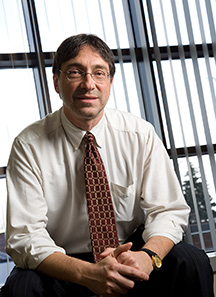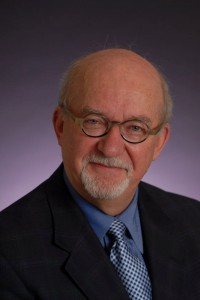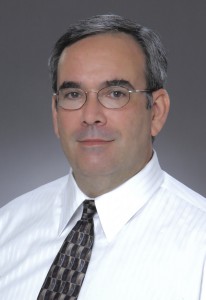Three ACRM community groups are sponsoring luncheons with special guest speakers on Thursday, 9 October and Friday, 10 October. Seating is limited. Register early. Choose two lunch programs when you select the World Pass at registration.
 NEURODEGENERATIVE DISEASES NETWORKING GROUP LUNCH
NEURODEGENERATIVE DISEASES NETWORKING GROUP LUNCH
with Speaker, Dr. John DeLuca
Thursday, 9 October // 12:30 PM – 2:00 PM // ticketed event
Cognitive Rehabilitation in Multiple Sclerosis: A Behavioral and Neuroimaging Analysis
![]()
Dr. DeLuca will provide an update on cognitive rehabilitation studies in persons with MS. The need to improve upon the methodological issues with prior studies will be discussed as well as a brief survey of recent well done studies. These will include studies on specific techniques found to improve learning and memory as well as recent well designed clinical trials. Studies which provide both behavioral and neuroimaging measures concerning cognitive rehabilitation in MS will be emphasized.
John DeLuca, PhD is senior vice president for research at the Kessler Foundation Research Center, a professor in the Departments of Physical Medicine & Rehabilitation (PM&R) and Neurology and Neuroscience at Rutgers New Jersey Medical School, and a licensed psychologist in the states of New Jersey and New York. He is currently studying disorders of memory and information processing in a variety of clinical populations including multiple sclerosis and traumatic brain injury. Dr. DeLuca’s accomplishments include over 275 published articles, abstracts, and chapters in these areas.
 BRUCKER INTERNATIONAL LUNCHEON
BRUCKER INTERNATIONAL LUNCHEON
with Speaker, Dr. Donald T. Stuss
Thursday, 9 October // 12:30 PM – 2:00 PM // ticketed event
Completing the Circle between Science and Rehabilitation: The Ontario Brain Institute Story
![]()
Effective rehabilitation might be described as the right treatment for the right person at the right time. The definition of “right” for each section is important. The “right treatment” means it is based on a theoretically driven, validated, and tested approach, which is continually updated and refined as knowledge changes. The “right person” suggests that rehabilitation needs to be directed to a well-characterized subgroup and that not all interventions might be applicable for everyone. The “right time” identifies the most efficacious opportunity. The way to achieve this is by integrating basic and clinical research, as well as patients and their advocacy groups and industry, in an open and collaborative enterprise. The presentation will outline the structure of the Ontario Brain Institute as a possible method to achieve maximum health impact.
Donald T. Stuss, PhD, C. Psych, ABPP-CN, Order of Ontario, FRSC, FCAHS is the founding president and scientific director of the Ontario Brain Institute and a professor of medicine at the University of Toronto. He founded the Rotman Research Institute in 1989 and served as director until 2008. Dr. Stuss is a fellow of CPA, APA (Divisions 3, 6, 20, 40), APS, the American Heart and Stroke Association, and the AAAS, and was honored with Lifetime Achievement Awards by the NAN and INS. His research concentrates on understanding and treating the cognitive functions and personality changes associated with the frontal lobes in various disorders. He has published over 200 peer-reviewed manuscripts, 49 chapters, and one co-authored and four edited books.
 SCI-ISIG LUNCHEON
SCI-ISIG LUNCHEON
with Speaker, Dr. Mark S. Nash
Friday, 10 October // 12:30 PM – 2:00 PM // ticketed event
Wellness After SCI: Are We Barking Up the Wrong Tree?
![]()
The presentation will address best practice approaches to foster physical wellness after SCI among stakeholders with injury, their caregivers, and health care providers. It will focus on why people with SCI may know the route to achieve physical wellness, but do not take the journey. In doing so, exploration of wellness barriers will be essential if the already established, evidence-based approaches to health attainment can be fully realized.
Learning Objectives
To support the attainment of knowledge, competence, and performance, the learner should be able to achieve the following objectives:
- Define the multidimensional constructs of wellness.
- Identify component risks of cardiendocrine disease after SCI as a barrier to wellness.
- Explain guideline-driven approaches that would enhance physical wellness after SCI.
- Recognize barriers to wellness attainment in persons with SCI, their caregivers, and health care professionals.
Mark S. Nash, PhD, FACSM has centered his 29 years in academic medicine on evidence-based approaches to identifying and then managing early vascular disorders and cardiometabolic hazards for persons with spinal cord injuries. Much of his work examined exercise countermeasures to cardiometabolic component risks, including activity-based investigations of voluntary and FES-induced exercise. Dr. Nash served on multiple federal grant review panels for NIDRR, NIH, the CDC, and the VA, and is currently chair of the PVA Consortium for Spinal Cord Medicine panel charged with writing clinical practice guidelines for cardiometabolic diseases in persons with SCI.








